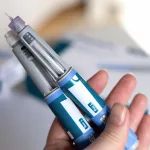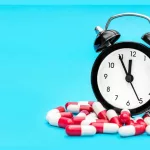Hey there! If you’ve just started (or are about to start) Xgeva (denosumab) and the word “interactions” is making you nervous, you’re not alone. The good news? Most of the potential bumps on the road are well‑charted, and with a little know‑how you can steer clear of trouble. Below is a friendly, no‑nonsense rundown of everything you need to know about Xgeva drug interactions, alcohol, supplements, and the safety checks that keep you on track.
Quick Overview
First things first: Xgeva is a powerful bone‑targeting medication used to protect patients with solid tumors, multiple myeloma, or giant‑cell bone tumors from skeletal complications. Because it works by dampening the process that breaks down bone, it can play nicely with many medicines—but it can also trip over a few. According to the Drugs.com interaction checker, there are 306 known drug interactions for Xgeva, with 5 major and 301 moderate warnings. That sounds scary, but most of those are easily managed with a quick chat with your health‑care team.
Major Interactions
Think of major interactions as red lights on a traffic map—if you hit them, you need to stop and reassess. Below are the five interactions that earn that “major” badge.
| Drug/Class | Why It Matters | Typical Outcome |
|---|---|---|
| Corticosteroids (e.g., dexamethasone) | Both suppress the immune system and can amplify bone loss | Higher risk of severe hypocalcemia or osteonecrosis of the jaw (ONJ) |
| Calcitonin (Miacalcin) | Targets the same bone‑resorption pathway | Excessive drop in calcium levels |
| Bisphosphonates (zoledronic acid) | Duplicate anti‑resorptive effect | Over‑suppression of bone turnover → rare fractures |
| Anticoagulants (apixaban/Eliquis) | Changes in bone turnover can affect bleeding risk | Potential for GI bleeding, especially if combined with NSAIDs |
| Chemotherapy agents (palbociclib/Ibrance) | Both affect bone marrow and immune response | Increased infection risk and possible additive bone toxicity |
When any of these appear on your medication list, your oncologist will usually either adjust the dose, add extra monitoring, or suggest an alternative therapy. It’s not a “stop‑everything” scenario—just a reminder to keep the conversation open.
Common Moderate Interactions
Most of the interactions you’ll encounter land in the “moderate” bucket. They’re not show‑stoppers, but they do warrant a little extra vigilance.
Cardiovascular Meds
Drugs like amlodipine, lisinopril, and losartan sit comfortably with Xgeva. The main caution is to keep an eye on electrolytes (especially potassium) when you combine them with diuretics.
Lipid‑Lowering Agents
Statins such as atorvastatin (Lipitor) and rosuvastatin (Crestor) are often prescribed alongside Xgeva. They don’t directly clash, but occasional mild liver‑enzyme shifts have been reported, so routine blood work is a good idea.
Pain & Anxiety Relief
Gabapentin, lorazepam, and even over‑the‑counter antihistamines (Benadryl) are generally safe. Just remember that both gabapentin and Xgeva can cause dizziness, so take it slow when you’re getting up from a chair.
Diabetes Management
Metformin and other oral hypoglycemics don’t interact directly, but hypocalcemia—one of Xgeva’s known side effects—can tinker with blood‑sugar control. If you notice sudden changes, let your diabetes team know.
Other Frequently Checked Meds
Here’s a snapshot of some meds that pop up a lot in the Drugs.com check‑list, along with the typical monitoring tip.
| Medication | Interaction Level | Monitoring Tip |
|---|---|---|
| Amlodipine | Moderate | Check blood pressure & electrolytes quarterly |
| Aspirin | Moderate | Watch for bruising; ensure calcium levels are stable |
| Atorvastatin | Moderate | Liver function tests every 3‑4 months |
| Furosemide | Moderate | Monitor potassium & calcium closely |
| Gabapentin | Moderate | Assess for dizziness or balance issues |
Alcohol & Xgeva: Myth‑Busting
One of the most common questions we hear is, “Can I still have a glass of wine?” The short answer: there’s no direct pharmacokinetic clash between alcohol and Xgeva. However, both can cause similar side effects—headache, fatigue, and a little nausea. If you’re already feeling those, a nightcap could push you over the edge.
My friend Maya, who was on Xgeva for bone metastases, found that after a weekend of heavy drinks she felt unusually shaky and tired. Her oncologist suggested cutting back to “social” drinking (no more than two drinks a week) until her calcium levels stabilized. The takeaway? Light, occasional alcohol is fine, but heavy use can mask early warning signs of hypocalcemia or dehydration.
Supplements, Vitamins & Minerals
Because Xgeva lowers bone turnover, doctors routinely recommend calcium + vitamin D supplements to keep blood calcium in the sweet spot. Here’s a quick cheat‑sheet of what’s safe, what’s supportive, and what’s best avoided.
| Supplement | Interaction Potential | Guidance |
|---|---|---|
| Calcium + Vitamin D (600 mg/400 IU) | Minor – actually protective | Take with meals; labs every 4 weeks for first 6 months |
| Magnesium oxide | Minor | Safe, but watch for GI upset |
| Fish oil / Omega‑3 | Minor | Generally safe; may benefit bone health |
| Herbal extracts (St. John’s Wort, Ginkgo) | Unknown | Better to avoid or discuss with pharmacist first |
| High‑dose vitamin C | Minor | Usually fine, but excess can affect kidney stone risk |
Real‑world story: Tom stopped his calcium supplement after a vacation because he thought “I’m getting enough from food.” A week later his lab showed a dip in serum calcium, and his doctor promptly adjusted his supplement dose. The lesson? Consistency beats occasional guess‑work.
Disease‑Specific Considerations & Contraindications
Low Calcium (Hypocalcemia)
If your baseline calcium is below 8 mg/dL, Xgeva is generally held off until you bring it back into range. The drug can further lower calcium, leading to muscle cramps, tingling, or even seizures in extreme cases. Thus, a pre‑treatment blood draw is mandatory.
History of Osteonecrosis of the Jaw (ONJ)
Anyone who’s had ONJ or active dental disease should discuss alternative options with their oncologist. The risk of worsening jaw health is why dental clearance is a standard pre‑Xgeva step.
Renal Impairment
For patients with a creatinine clearance under 30 mL/min, the Xgeva dose may be reduced. Kidney function affects how the body handles calcium and phosphate, so regular renal labs are part of the safety bundle.
Practical Safety Checklist
Grab a pen or a notes app and keep this list handy during every oncology visit.
- Medication Review: Bring every prescription, OTC, and supplement.
- Lab Schedule: Calcium, phosphate, vitamin D every 4 weeks for the first half‑year.
- Dental Clearance: Finish any invasive work at least two weeks before starting Xgeva.
- Alcohol Moderation: Keep it light if you notice fatigue or headaches.
- Interaction Checker: Use the Drugs.com Xgeva checker whenever you add a new medication.
Print this out, stick it on your fridge, or set a reminder on your phone—whatever helps you keep the essentials front and center.
How to Run Your Own Interaction Check
Feeling proactive? Here’s a step‑by‑step guide that takes less than five minutes.
- Write down every medication you take, including “as needed” pills and herbals.
- Open the Drugs.com interaction checker and type “Xgeva” (or “denosumab”).
- Add each of your meds one by one; the tool will flag major, moderate, or minor alerts.
- Take a screenshot of any “major” warnings and send it to your oncologist or pharmacy team.
- For “moderate” alerts, note the monitoring suggestions (e.g., check calcium levels) and set up a reminder.
This simple routine can turn a potential problem into a quick conversation, keeping you safe without slowing down your treatment plan.
Putting It All Together: Your Path to Confidence
Learning the ins and outs of Xgeva interactions might feel like navigating a maze, but you’ve just been handed the map. The key takeaways:
- Most interactions are moderate and manageable with routine labs and open communication.
- Major interactions are rare but critical—always flag corticosteroids, calcitonin, bisphosphonates, anticoagulants, and certain chemo agents.
- Alcohol isn’t a direct enemy, but moderation helps you hear your body’s warning signs.
- Calcium + vitamin D isn’t just safe—it’s protective. Keep the supplement habit consistent.
- Regular dental checks, lab work, and a personal medication list are your safety net.
We all crave clarity when we’re dealing with serious health decisions. By staying informed, asking questions, and using tools like the interaction checker, you give yourself the best possible footing to enjoy the benefits of Xgeva while minimizing risks.
Let’s Keep the Conversation Going
Have you discovered a tip that helped you stay on top of Xgeva’s safety checks? Maybe you’ve faced a surprise interaction and learned something valuable along the way. Share your story in the comments—your experience could be the exact piece of advice another reader needs.
If any part of this guide feels unclear, or if you’re wondering how a specific supplement fits into your regimen, drop a question below. I’m happy to dig deeper and point you toward reliable sources.
Remember: you’re not navigating this alone. Your oncology team, pharmacists, and even fellow patients are allies in the journey. Stay curious, stay safe, and keep moving forward.























Leave a Reply
You must be logged in to post a comment.